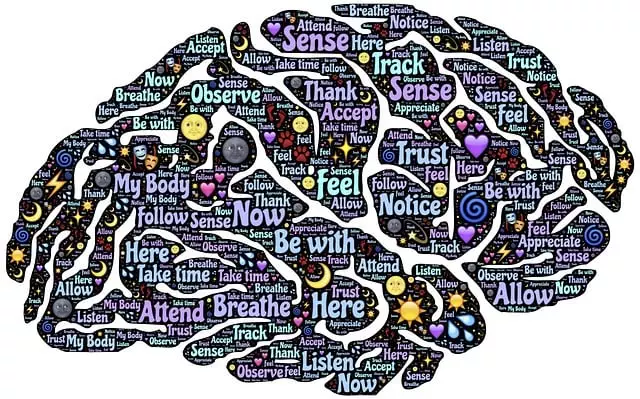Mental wellness program evaluations, vital for gauging the success of initiatives aimed at enhancing mental health outcomes, involve a blend of quantitative (surveys, data analysis) and qualitative (interviews, focus groups) assessments. Organizations like Kaiser, offering inpatient mental health services in Greenwood Village, employ these methods to identify areas for improvement, align practices with evidence-based standards, and promote positive outcomes. Their holistic approach includes Stress Management Workshops, providing patients with practical tools for managing daily challenges. Kaiser's evidence-based practices and patient-centered care make it a leading choice for specialized mental health support in the area, with evaluations going beyond satisfaction surveys to track key performance indicators like readmission rates and symptom improvements.
Mental wellness program evaluation is crucial for understanding and improving healthcare services, especially in outpatient settings like Kaiser’s Inpatient Mental Health Services in Greenwood Village. This article explores various evaluation methods used to assess the success of mental health programs, focusing on Kaiser’s innovative approaches. We delve into common evaluation techniques, their effectiveness, and unique strategies that contribute to enhancing patient outcomes. By examining these methods, we gain insights into how mental wellness initiatives can be optimized for maximum impact.
- Understanding Mental Wellness Program Evaluation
- Kaiser's Inpatient Mental Health Services in Greenwood Village
- Common Evaluation Methods and Their Effectiveness
- Assessing the Success of Mental Health Programs
Understanding Mental Wellness Program Evaluation

Mental wellness program evaluations are essential components of ensuring that initiatives aimed at improving mental health outcomes are effective and tailored to the needs of the population they serve. Evaluating such programs involves a comprehensive understanding of the target audience, the specific goals of the intervention, and robust measurement tools to assess changes in mental well-being. For instance, organizations like Kaiser, with inpatient mental health services in Greenwood Village, employ sophisticated evaluation methods to gauge the success of their programs.
This process often includes both quantitative and qualitative assessments to capture the multifaceted nature of mental wellness. Quantitative measures may involve surveys and data analysis to track changes in symptoms, while qualitative methods such as interviews or focus groups provide deeper insights into participants’ experiences. By integrating these evaluations, Kaiser can identify areas for improvement in their services, ensure alignment with evidence-based practices, and promote positive outcomes for individuals seeking support for their mental health through inpatient care.
Kaiser's Inpatient Mental Health Services in Greenwood Village

Kaiser’s Inpatient Mental Health Services in Greenwood Village offer a comprehensive solution for individuals seeking intensive care and support for their mental wellness. This program is designed to provide a safe and structured environment where patients can focus on healing and recovery. The facility utilizes various communication strategies tailored to each patient’s unique needs, ensuring effective treatment and fostering a sense of belonging.
The inpatient services at Kaiser are renowned for their holistic approach, incorporating Stress Management Workshops that empower individuals with practical tools to cope with daily challenges. Through these workshops, patients gain valuable insights into managing stress, enhancing their overall mental wellness. The organization’s commitment to evidence-based practices and patient-centered care makes it a leading choice for those in need of specialized mental health support in the Greenwood Village area.
Common Evaluation Methods and Their Effectiveness

In evaluating mental wellness programs, various methods are employed to gauge their effectiveness. One common approach is the use of self-reported surveys and questionnaires that assess symptoms, attitudes, and behaviors related to mental health. These tools can provide valuable insights into participants’ subjective experiences, such as levels of anxiety, depression, and stress. For instance, institutions like Kaiser, with inpatient mental health facilities in Greenwood Village, may utilize standardized measures to track patient outcomes and program impact.
Another effective method involves structured interviews or focus groups where participants discuss their experiences openly. This qualitative approach allows for a deeper understanding of individual journeys, challenges faced, and the perceived benefits of the program. Combining quantitative and qualitative data through mixed-methods research can offer a comprehensive evaluation of mental wellness programs, particularly in healthcare settings. Such methods are essential in identifying areas for improvement, especially when considering burnout prevention strategies for healthcare providers, as it ensures that programs address both individual and systemic factors contributing to mental wellness.
Assessing the Success of Mental Health Programs

Evaluating the success of mental health programs is a multifaceted process that goes beyond simple participant satisfaction surveys. At Kaiser, for instance, their inpatient mental health services in Greenwood Village employ a comprehensive approach to gauge the true impact of their programs. This involves tracking key performance indicators (KPIs) such as readmission rates, patient engagement in therapy, and improvements in symptoms related to conditions like depression and anxiety. By integrating these metrics, Kaiser can identify areas where their program excels and pinpoint aspects that may need refining.
Beyond numerical data, qualitative assessments play a crucial role. Patient feedback, through open-ended surveys and one-on-one interviews, provides valuable insights into the coping skills development and inner strength gained during their stay. This dual approach—quantitative and qualitative—ensures a holistic understanding of program effectiveness, contributing to continuous improvement in mental health care services.
Mental wellness program evaluation is a multifaceted process, crucial for understanding the effectiveness and success of initiatives like Kaiser’s inpatient mental health services in Greenwood Village. By employing various methods, from qualitative feedback to quantitative data analysis, we can assess the impact and make informed decisions. While each approach has its strengths and limitations, a comprehensive evaluation ensures that programs are tailored to meet the diverse needs of individuals seeking mental health support. This strategic evaluation not only enhances existing services but also fosters continuous improvement, ultimately contributing to better outcomes for those navigating their mental wellness journeys.






